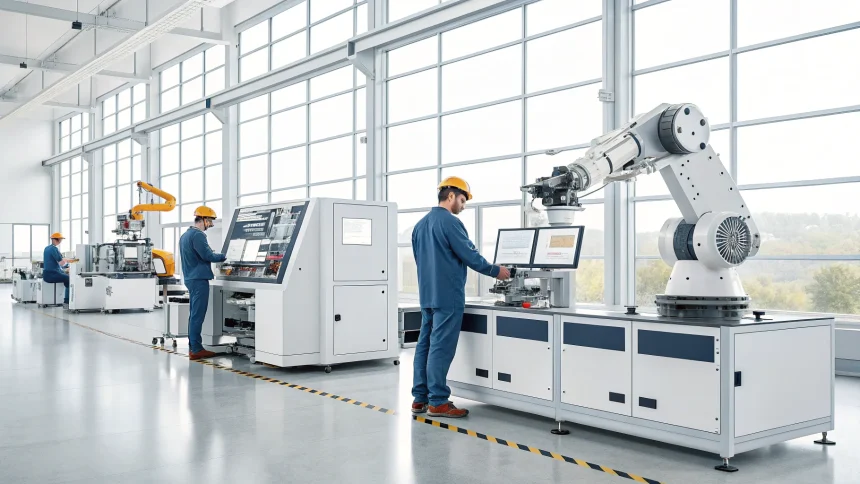Artificial intelligence has emerged as a transformative force across multiple sectors, with organizations increasingly crediting AI for their success in innovation, efficiency, and competitive advantage.
Companies, researchers, and institutions are acknowledging AI’s role in advancing their capabilities and achieving breakthroughs that were previously unattainable. From healthcare diagnostics to financial services, manufacturing to creative industries, AI technologies are enabling new possibilities and reshaping traditional approaches.
AI’s Growing Impact Across Industries
The statement “They have artificial intelligence to thank” reflects a growing reality for many organizations that have adopted AI solutions. Healthcare providers are using machine learning algorithms to detect diseases earlier and with greater accuracy than conventional methods. Financial institutions have implemented AI systems for fraud detection and risk assessment, significantly reducing losses and improving customer security.
In manufacturing, AI-powered predictive maintenance has helped companies reduce downtime by identifying potential equipment failures before they occur. One manufacturing executive recently noted that their plant had seen a 35% reduction in unplanned downtime since implementing AI monitoring systems.
The retail sector has also benefited substantially, with AI enabling personalized shopping experiences and inventory management that responds to consumer behavior in real-time.
The Human-AI Partnership
Despite concerns about job displacement, many organizations report that AI has augmented human capabilities rather than replaced them. Workers across various sectors are finding that AI tools handle routine tasks, allowing them to focus on more complex, creative, and strategic work.
This partnership between humans and AI is particularly evident in fields like:
- Medical research, where AI analyzes vast datasets to identify patterns humans might miss
- Legal services, with AI handling document review while attorneys focus on case strategy
- Creative industries, where AI tools assist with editing and production while humans direct creative vision
Challenges and Ethical Considerations
The rapid adoption of AI technologies has not been without challenges. Organizations implementing AI systems face issues related to data quality, integration with existing systems, and the need for specialized talent.
Ethical considerations also remain at the forefront of AI implementation. Questions about bias in algorithms, data privacy, and appropriate use of automated decision-making continue to shape policy discussions and corporate governance.
Regulatory frameworks are still evolving to address these concerns, with some industries developing their own standards while awaiting more comprehensive legislation.
Economic Impact and Future Outlook
The economic impact of AI adoption has been substantial. A recent analysis suggests that companies effectively implementing AI solutions have seen productivity increases of 15-40% in their affected business processes.
Small and medium enterprises are increasingly finding accessible AI solutions that don’t require massive investments in infrastructure or specialized staff, democratizing access to these powerful tools.
Looking forward, the integration of AI with other emerging technologies like the Internet of Things (IoT) and 5G networks promises to create even more powerful applications and use cases.
As AI capabilities continue to advance, organizations that successfully navigate the technical, ethical, and organizational challenges of implementation will likely find themselves with even more to thank artificial intelligence for in the coming years.
The transformation underway represents not just technological change but a fundamental shift in how organizations operate, innovate, and create value in the digital age. For many, artificial intelligence has become not just a tool but an essential partner in achieving their most important objectives.







